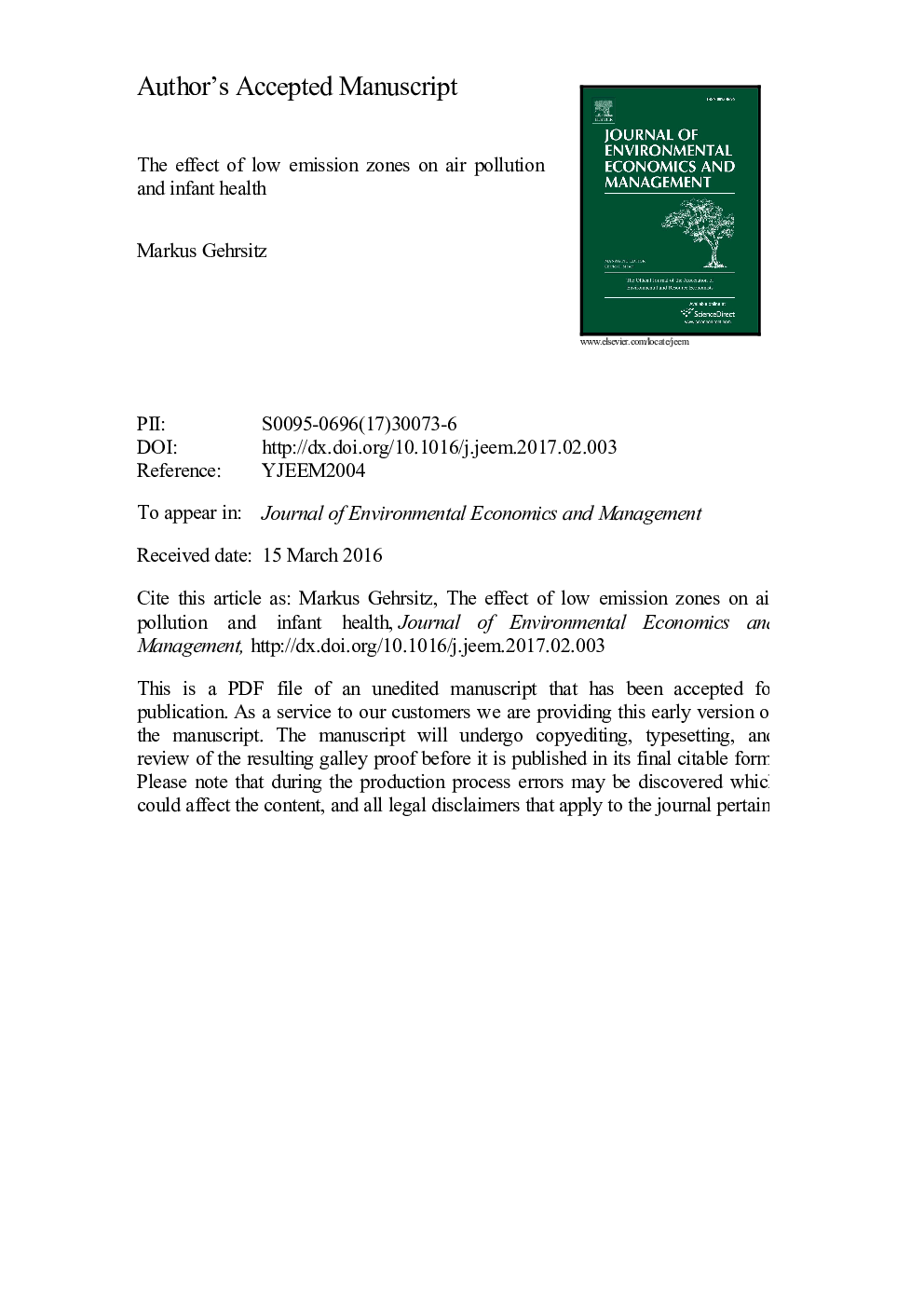| Article ID | Journal | Published Year | Pages | File Type |
|---|---|---|---|---|
| 5100415 | Journal of Environmental Economics and Management | 2017 | 52 Pages |
Abstract
This paper investigates the effect of low emission zones on air quality and birth outcomes in Germany. The staggered introduction of the policy measure creates a credible natural experiment and a natural control group for births and air pollution measurements in cities that enact low emission zones. I show that the introduction of the most restrictive type of low emission zone decreases average levels of fine particulate matter by about 4 percent and by up to 8 percent at a city's highest-polluting monitor. Low emission zones also reduce the number of days per year on which legal pollution limits are exceeded by three. However, these reductions are too small to translate into substantial improvements in infant health. My results are not driven by changes in maternal or city specific characteristics, and are robust to variations in specification and to the choice of control group.
Keywords
Related Topics
Social Sciences and Humanities
Economics, Econometrics and Finance
Economics and Econometrics
Authors
Markus Gehrsitz,
